Alcohol addiction is a pervasive issue that affects millions worldwide, significantly impacting individuals’ mental health and overall quality of life. Choosing the best form of treatment is crucial for those seeking to overcome alcohol abuse. Outpatient alcohol detox programs offer a flexible and effective solution for many, providing the necessary support while allowing participants to maintain much of their daily lives. This blog discusses what to expect from outpatient alcohol detox programs, highlighting their structure, benefits, and essential components.
Understanding Outpatient Alcohol Detox
Outpatient alcohol treatment provides a structured alcohol detox framework without requiring overnight stays, unlike inpatient and residential treatment. This form of detoxification is suited for individuals who experience mild to moderate alcohol withdrawal symptoms and possess a strong support network at home. Outpatient treatment programs allow individuals to receive daily or several times weekly treatment, including medical and psychological support, without full-time commitment to a rehab center.
Outpatient Programs vs. Inpatient Treatment
The critical difference between outpatient and inpatient treatment is the setting and intensity. Inpatient treatment involves a residential stay at a treatment center that offers 24-hour care. This is often recommended for those with severe alcohol use disorder or co-occurring disorders. Conversely, outpatient alcohol rehab programs cater to those who need to balance treatment with personal or professional responsibilities in an outpatient setting.
Ideal Candidates for Outpatient Treatment
Candidates for outpatient detox typically do not require the intensive monitoring of inpatient treatment. These individuals may have less severe substance use disorders or have already completed an inpatient stay and are looking to continue their recovery process. Outpatient alcohol treatment is also suitable for individuals committed to recovery and have a stable, supportive home environment, and for people who may have children or other commitments that would make inpatient treatment a challenge.
Components of Outpatient Detox Programs
Outpatient detox programs are multifaceted, designed to address both the physical and psychological aspects of addiction, ensuring a comprehensive approach to substance abuse treatment.
Medical Evaluation and Monitoring
Upon entering an outpatient program, individuals undergo a thorough medical assessment to tailor the detox program to their specific needs. This assessment typically includes an evaluation of alcohol use, mental health status, and physical health. Withdrawal management is a critical component, with medical staff providing medication-assisted treatment to ease alcohol withdrawal symptoms and prevent severe complications like delirium tremens.
Psychological Support and Therapy Options
Behavioral therapies are a cornerstone of outpatient alcohol rehab. These may include individual therapy, group therapy, and family counseling, all aimed at addressing the psychological aspects of addiction. Therapy sessions help individuals understand the root causes of their substance use disorder, develop coping strategies, and repair relationships damaged by alcohol use.
Support Systems and Continued Care
Support groups such as Alcoholics Anonymous (AA) or SMART Recovery play a vital role in the recovery process, offering peer support and shared experiences in a structured setting. Outpatient facilities often encourage ongoing participation in these groups alongside scheduled therapy sessions to bolster relapse prevention efforts.
Benefits of Outpatient Alcohol Detox
Choosing an outpatient alcohol detox program offers numerous advantages, particularly for those who are motivated and have supportive home environments.
Flexibility and Cost-Effectiveness
Outpatient treatment programs provide flexibility, allowing individuals to continue their daily activities, such as work and family life, while undergoing treatment. This model is often more cost-effective than inpatient treatment, as it does not include the costs associated with residential care.
Family Involvement and Support
Outpatient settings uniquely allow for greater family involvement in the recovery process, which can be pivotal for long-term success. Family members can participate in counseling sessions, providing support and understanding crucial for managing substance abuse.
Efficacy and Accessibility
Studies have shown that intensive outpatient programs can be just as effective as inpatient programs for many individuals, especially when they include comprehensive treatment options and support systems. Outpatient alcohol rehab programs also tend to be more accessible, making them a valuable option for those seeking help for alcohol use disorder.
Challenges and Considerations
Managing Withdrawal Symptoms at Home
Managing withdrawal symptoms in an outpatient setting presents unique challenges. While outpatient programs provide support and medication to ease symptoms, the individual must still cope with the physical and psychological effects of withdrawal outside a controlled environment. It’s imperative for participants to recognize the onset of severe symptoms such as delirium tremens, which can be life-threatening and require immediate medical attention.
The Need for a Strong Support Network
A strong support network is vital in an outpatient rehab setting. Family members, friends, and support groups form a critical safety net, providing emotional support and helping to monitor and encourage the individual’s progress. Without a robust support system, the risk of relapse increases, underscoring the importance of an engaged and supportive community.
Situations When Inpatient Detox Might Be Necessary
Outpatient detox programs are not suitable for everyone. Individuals with severe alcohol use disorder, significant co-occurring mental health issues, or a history of relapsing may require a more structured environment of inpatient treatment. Additionally, those without a stable living situation or a supportive home environment might benefit more from inpatient care where comprehensive support is readily available.
The Detox Timeline: What to Expect
Typical Duration of Outpatient Detox Programs
Outpatient detox programs can vary in duration, typically lasting from one to three weeks, depending on the individual’s needs and the severity of their alcohol use disorder. These programs are designed to manage withdrawal symptoms while integrating behavioral therapies and support mechanisms gradually.
Milestones in the Detox Process
The detox process in an outpatient setting involves several key milestones:
- Medical Assessment: Establishing a personalized treatment plan based on the individual’s health and substance use history.
- Medication Management: Utilizing medications to manage withdrawal symptoms and cravings safely.
- Engagement in Therapy: Starting individual and group therapy sessions to address the underlying causes of alcohol abuse.
- Integration of Support Systems: Involving support groups and family counseling to enhance recovery outcomes.
Monitoring Progress and Adjusting Treatments
Continuous monitoring is crucial in outpatient settings to ensure the safety and effectiveness of the detox process. Treatment plans should be regularly adjusted based on the individual’s progress, challenges in managing withdrawal symptoms, and changes in their personal life that might affect recovery.
After Outpatient Detox: Next Steps in Recovery
Transitioning to Ongoing Therapy or Rehabilitation Programs
Once the initial detox phase is completed, individuals often transition to more intensive outpatient treatment or other forms of long-term rehabilitation. These programs focus on more profound psychological treatment, relapse prevention techniques, and strategies for maintaining sobriety.
Long-term Recovery Strategies and Relapse Prevention
Developing a comprehensive long-term recovery plan is essential. This includes ongoing participation in support groups, regular therapy sessions, and potentially continued medication management. Strategies for relapse prevention are tailored to individual triggers and life circumstances to support sustained recovery.
Importance of Continued Support and Care
Sustained support from treatment providers, family, and peer groups is indispensable. Continued care is often what separates successful recovery from relapse, highlighting the necessity for ongoing engagement in therapeutic and support activities.
Choosing the Right Outpatient Alcohol Detox Program
Factors to Consider When Selecting a Program
When choosing an outpatient alcohol detox program, consider factors such as program accreditation, the qualifications of the staff, the types of treatment options available, and the program’s approach to managing withdrawal symptoms and providing psychological support.
Questions to Ask Providers
Prospective participants should ask providers about the following:
- The structure of the detox and treatment programs.
- Success rates and any data on long-term recovery outcomes.
- How the program tailors treatment to individual needs.
- Support services and family involvement in the treatment process.
How to Evaluate the Success Rates and Reviews of Programs
Evaluating a program’s effectiveness can be challenging, but prospective clients can look at reviews and testimonials, ask for success statistics, and seek out independent evaluations if available. Understanding the experiences of past participants can provide valuable insights into the detox program’s effectiveness.
By carefully considering these aspects, individuals can select an outpatient alcohol detox program that best suits their needs and maximizes their chances for a successful recovery.
Start Your Recovery with Outpatient Detox at Lilac Recovery Center
Embarking on the journey to recovery is a courageous step, and choosing the right detox program is crucial. At Lilac Recovery Center, we understand the challenges of overcoming alcohol addiction and are committed to supporting you every step of the way. Our outpatient detox program at our San Deigo luxury rehab is designed to provide flexible, comprehensive care tailored to your unique needs, helping you manage withdrawal symptoms effectively while maintaining your daily responsibilities. With a dedicated team of experts, proven treatment strategies, and a supportive community, we ensure you have the resources and support necessary for a successful recovery.
If you’re ready to take the first step towards a healthier, alcohol-free life, contact Lilac Recovery Center today. Our compassionate team is ready to help you through your recovery journey with personalized care and continuous support.




